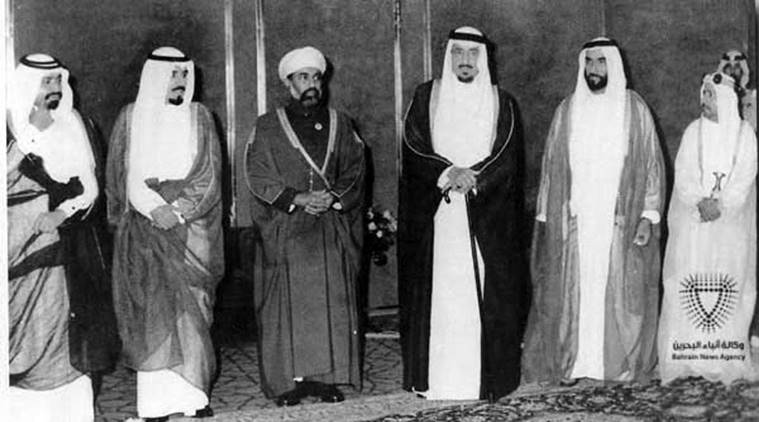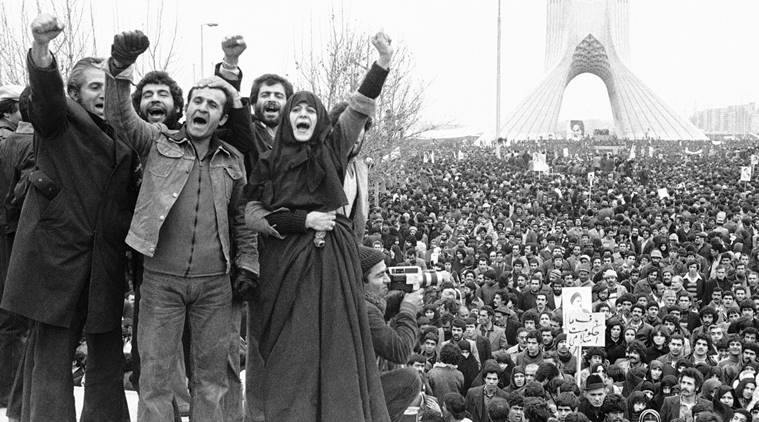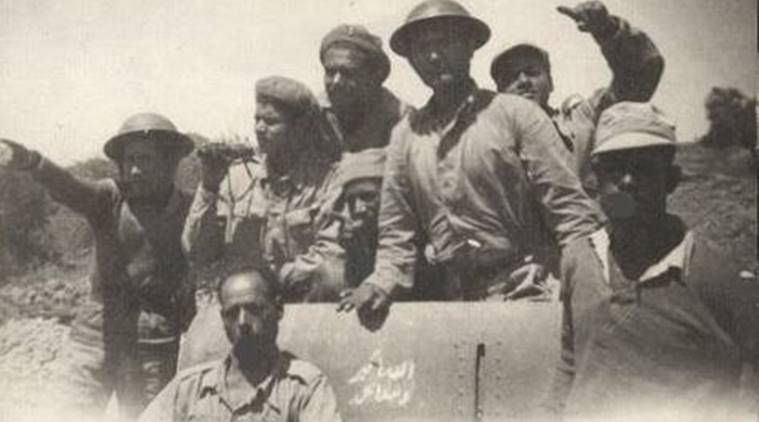 Heads of states of the GCC. (Wikimedia Commons)
Heads of states of the GCC. (Wikimedia Commons)
When Saudi Arabia, Kuwait, Qatar, UAE, Bahrain and Oman came together in 1981 to form the Gulf Cooperation Council (GCC), the motive was increased cooperation among themselves and a decreased dependence on foreign powers like the British and the Americans. The Charter of the council opened with the lines “being fully aware of the ties of special relations, common characteristics and similar systems founded on the creed of Islam which bind them; and desiring to effect coordination, cooperation and integration between them in all fields.” However, on Monday when Saudi Arabia, UAE, Egypt and Bahrain unanimously decided to cut down all diplomatic ties with Qatar, the efforts of coordination embedded in the GCC received a huge blow.
Relations between the Gulf countries had been undergoing stress for a while now and the latest move by the four countries has brought things to a boiling point. Matters had been worsening since May this year when Qatar got into a tussle with its Gulf neighbours when it alleged that its official government website had been hacked and false statements posted on behalf of the emir, Sheikh Tamim bin Hamad Al Thani. Reportedly, the statements were critical of some of the leaders of the Gulf states and asked for smoothing relations with Iran. Dismissing Qatar’s allegations, Saudi Arabia and UAE blocked the Al Jazeera television channel’s website, which both the countries believe is hostile to them.

Also read: Doha isolated in Gulf: What it means for Delhi
Following the spat over the website hacking, the recent move by the four countries was justified on grounds that ‘Qatar has been supporting Islamic terrorist organisations’. While the policy statement made by the four countries has come as a surprise to most, the rift among the Gulf nations is something that has developed over decades now since the time the GCC was created.
Establishment of the Gulf Cooperation Council (GCC)
The formation of modern nation states in the Gulf region is a recent phenomenon, dating back to the early years of the 20th century. Formerly, the watery geographical borders among the Arab tribes in this part of the world ensured that it was prone to, and rather needed the intervention of foreign powers for defence purposes. The Western powers on the other hand had special interest in the region on account of its trade related value. Historically speaking, on various occasions the Ottomans, the Portuguese, the British and most recently the Americans have played a significant role in the political setting of the Gulf region.

 However, the religious revolution in Iran and the establishment of an Islamic republic came as a shock to the Gulf nations, who saw in it a potency to shake the political establishment in their territories as well. (Wikimedia Commons)
However, the religious revolution in Iran and the establishment of an Islamic republic came as a shock to the Gulf nations, who saw in it a potency to shake the political establishment in their territories as well. (Wikimedia Commons)
However, certain major events from the late 1970s made it imperative for the Gulf countries to come together more cohesively both for economic and security reasons. The Iranian revolution of 1978-79, the Soviet invasion of Afghanistan in 1979 and the Iran-Iraq war beginning in the 1980s made evident the dangers of Western intervention and the threat of revolutionary elements and communism overspilling into the other Arab countries.
For a long time, the socio-economic basis of the Gulf region was determined by Shiite Islamic practices. However, the religious revolution in Iran and the establishment of an Islamic republic came as a shock to the Gulf nations, who saw in it a potency to shake the political establishment in their territories as well. “The political leadership of the Gulf countries has generally responded to the challenge of Islamic resurgence bubbling from below by their own forms of official or establishment Islam promoted from the top,” writes Middle Eastern specialist James A. Bill while analysing how political power and Shiism interacted with each other in Gulf nations. The GCC was an outcome of the threat that revolutionary Shia forces purportedly posed to the gulf countries. Defense and security concerns were the main focus of the GCC.
Also read: The Little Gang Who Couldn’t: Lessons from the Saudi-Qatar crisis
However, a flip side to developing a barrier against Shia Islamic revolutionary forces in the GCC countries was that it created an open ground for Sunni forces of Islamic fundamentalism to progress easily, in a way that it started influencing social and political policy in these nations. Soon after, several of the GCC countries came to be accused of sponsoring Sunni terrorist organisations.
Rift between Qatar and other GCC nations over Islamic terrorism
Most Read 1Sunny Deol says he doesn’t like how Shah Rukh Khan has turned actors into a ‘commodity’, Salman has made them into ‘bodybuilders’ 2Aishwarya Rai cuts birthday cake at an event with daughter Aaradhya Bachchan, refuses to eat as she is observing Karva Chauth. Watch video 3Amit Sadh worked as security guard in ‘Delhi’s most expensive neighbourhood’, would pay Rs 25 to sleep in a community centre 4Between a 21-year-old graduate going viral for crying over a 9-5 job, and Narayana Murthy’s 70-hour work week, is there a middle path for Gen Z? 5‘Indira Gandhi didn’t want to send army into Golden Temple, but Rajiv Gandhi, Arun Nehru wanted action’
After Qatar achieved freedom from the United Kingdom in 1971, the Arab countries were the first ones to recognise it as an independent entity. However, over time the country has on several occasions been criticised by its Arab neighbours of extending support to Islamic terrorist organisations. The Middle Eastern country was particularly rebuked for allegedly being supportive of the ‘Muslim Brotherhood’, a Sunni Islamist political group outlawed by Saudi Arabia and the UAE.
 The Middle Eastern country was particularly rebuked for allegedly being supportive of the ‘Muslim Brotherhood’, a Sunni Islamist political group outlawed by Saudi Arabia and the UAE. (Wikimedia Commons)
The Middle Eastern country was particularly rebuked for allegedly being supportive of the ‘Muslim Brotherhood’, a Sunni Islamist political group outlawed by Saudi Arabia and the UAE. (Wikimedia Commons)
In 2014, Saudi Arabia and Qatar ties were strained over the latter’s support to the Egyptian president, Mohamed Morsi who was a Brotherhood member. The political battle that followed resulted in Saudi Arabia, UAE and Bahrain removing their ambassadors from Qatar. However, they were returned eight months later once Qatar had sent away a few of the Brotherhood members.
Also ReadHere is what happened in Kedarnath, and rest of Uttarakhand, in 2013Here is everything you need to know about Indian JewsFrom Vivekananda to Motilal Nehru: The Indian leaders believed to have jo…A short history of the Sardar Sarovar Dam on river Narmada
Alternatively, one also needs to remember that Saudi Arabia itself has faced criticism from Western powers for giving support to terror organisations, particularly after the 9/11 attacks on the Word Trade Centre. Fifteen out of the nineteen hijackers who took control of the two planes were from Saudi Arabia, and in March this year the largest lawsuit related to the 9/11 attacks was filed against the country. The decision to cut ties with Qatar comes days after US president Donald Trump visited Riyadh, where he asked Middle Eastern leaders to aggressively drive out Islamic terrorism.
© IE Online Media Services Pvt Ltd

